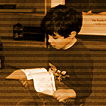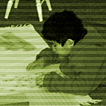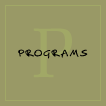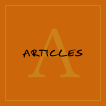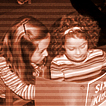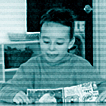ORGANIZATIONS
International Dyslexia Association - A
non profit organization dedicated to helping individuals
with
dyslexia, their families and the communities that support
them. www.interdys.org
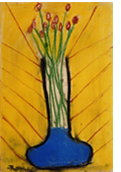 National Center for Learning Disabilities - NCLD
provides essential information to parents, professionals
and individuals
with learning disabilities, promotes research
and programs to foster effective learning and advocates
for
policies to protect and strengthen educational rights and
opportunities. www.ncld.org National Center for Learning Disabilities - NCLD
provides essential information to parents, professionals
and individuals
with learning disabilities, promotes research
and programs to foster effective learning and advocates
for
policies to protect and strengthen educational rights and
opportunities. www.ncld.org
The Hello Friend/Ennis William Cosby
Foundation - is dedicated
to fulfilling the goals and dreams of Ennis Cosby. 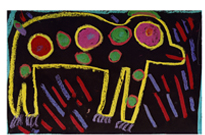 The
Foundation equips teachers, parents and students
with the practical information and educational tools needed
to understand and address the needs of all learners before
they experience the corrosive effects of frustration and
failure. The Foundation was established in 1997 by Bill
and Camille Cosby as a 501(c)(3) public charity. www.hellofriend.org The
Foundation equips teachers, parents and students
with the practical information and educational tools needed
to understand and address the needs of all learners before
they experience the corrosive effects of frustration and
failure. The Foundation was established in 1997 by Bill
and Camille Cosby as a 501(c)(3) public charity. www.hellofriend.org
Smart Kids with Learning Disabilities - Smart
Kids with Learning Disabilities is a non-profit organization
dedicated to empowering the parents of children with learning
disabilities (LD) and attention-deficit disorder (ADHD). www.smartkidswithld.org
SchwabLearning.org - A parents guide for helping
kids with learning difficulties. www.schwablearning.org
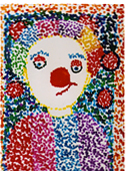 The Connecticut Association
for Children and Adults with Learning Disabilities (CACLD) -
Founded in 1963, The Connecticut Association for Children
and Adults
with Learning Disabilities is a regional, non-profit
organization that supports individuals, families, and professionals
by providing information, education, and consultation while
promoting public awareness and understanding. CACLD's goal
is to ensure access to the resources needed to help children
and adults with learning disabilities and attention deficit
disorders achieve their full potential. www.cacld.org The Connecticut Association
for Children and Adults with Learning Disabilities (CACLD) -
Founded in 1963, The Connecticut Association for Children
and Adults
with Learning Disabilities is a regional, non-profit
organization that supports individuals, families, and professionals
by providing information, education, and consultation while
promoting public awareness and understanding. CACLD's goal
is to ensure access to the resources needed to help children
and adults with learning disabilities and attention deficit
disorders achieve their full potential. www.cacld.org
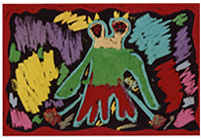 All Kinds Of Minds -
All Kinds of Minds was founded in 1995 to translate the
latest research on how children
learn
into programs, products, and
services that help students struggling in school become
more successful learners. The institute’s mission
is to help students who struggle with learning measurably
improve
their success in school and life by providing programs
that integrate educational, scientific, and clinical expertise.
All Kinds of Minds is a 501(c) 3-compliant, non-profit,
charitable
institute. www.allkindsofminds.org All Kinds Of Minds -
All Kinds of Minds was founded in 1995 to translate the
latest research on how children
learn
into programs, products, and
services that help students struggling in school become
more successful learners. The institute’s mission
is to help students who struggle with learning measurably
improve
their success in school and life by providing programs
that integrate educational, scientific, and clinical expertise.
All Kinds of Minds is a 501(c) 3-compliant, non-profit,
charitable
institute. www.allkindsofminds.org
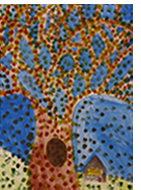 MONTESSORI EDUCATION MONTESSORI EDUCATION
Angeline Stoll Lillard, Montessori -
The
Science Behind the Genius. Oxford University Press
(2005)
Maria Montessori - The Discovery of
the Child Thiruvanmiyur, Madras,
India: Kalakshetra Press. 1966.
Maria Montessori - The Montessori Method.
New York: Rowman & Littlefield
Publishers, 2004.
Mario M. Montessori - Education for
Human Development. New
York: Schocken Books. 1976.
CHILD DEVELOPMENT
American Academy of Child and Adolescent Psychiatry, and
David B Pruitt, eds. - Your Child: Emotional,
Behavioral and Cognitive Development from Birth through Preadolescence.
New York: Harper Collins, 1998
American Academy of Child and Adolescent Psychiatry, and
David B Pruitt, eds. - our Adolescent:
Emotional, Behavioral and Cognitive Development from Early
Adolescence through
the Teen Years. New York: Harper Collins, 1999
 ATTENTION ISSUES ATTENTION ISSUES
Edward M., Hallowell, John J., Ratey - Driven
to Distraction: Recognizing and Coping with Attention Deficit
Disorder from
Childhood through Adulthood. New York: Simon and Schuster,
1994
Kevin Kallikow, Your Child in the Balance - Insider’s
Guide for Parents to the Psychiatric Medicine Dilemma.
New York: CDS Books, 2006
Timothy Wilens - Straight Talk about
Psychiatric Medications for Kids. New York: Guilford
Press, 2001
SENSORY INTEGRATION
Carol Stock Kranowitz - The Out-of-Sync
Child. New York: Skylight
Press, (1988)
DYSLEXIA
Sally Shaywitz, M.D. - Overcoming Dyslexia.
New York: Alfred Knopf, 2003
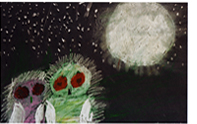 RESILIENCE RESILIENCE
R.B. Brooks & S. Goldstein - Raising
Resilient Children.
Chicago, IL: Contemporary Books, (2001)
R.B. Brooks (2001) - Fostering Motivation,
Hope and Resilience in Children with Learning Disorders.
Annals of Dyslexia,
Vol. 51, 2001, p. 9-20.
BACK TO TOP
|


